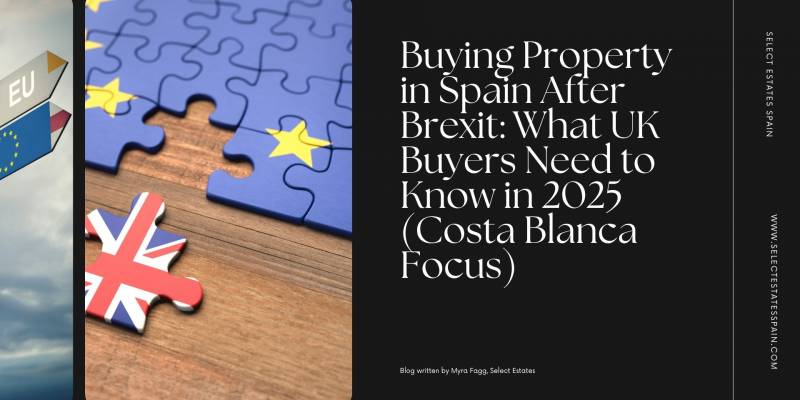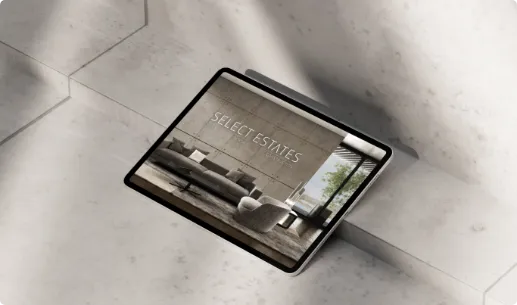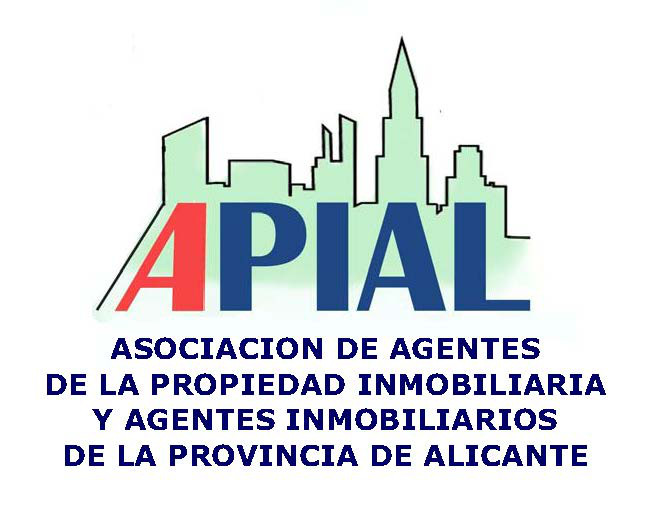Buying Property in Spain After Brexit: What UK Buyers Need to Know in 2025 (Costa Blanca Focus)

The dream of owning a second home in Spain has not disappeared for British buyers after Brexit. The Costa Blanca, with its year-round sunshine, affordable property prices, and thriving expat community, remains one of the most attractive destinations.
But what has changed since Brexit, and what should UK nationals know before investing in 2025? This guide breaks down the legal, tax, and residency rules — with a special focus on the Costa Blanca region.
What Has Stayed the Same
- UK citizens can still buy property in Spain.
- Your nationality does not restrict you from purchasing. The buying process itself (signing at the notary, registering the property, paying purchase taxes) is the same.
- Purchase taxes apply equally.
- Whether you are EU or non-EU, you must pay IVA (VAT) on new builds or Transfer Tax (Impuesto de Transmisiones Patrimoniales, ITP) on resale.
- In the Costa Blanca (Valencia region), ITP is always 10%. This is an important regional rule — there are no reduced 6% rates here.
What Has Changed After Brexit
- Residency and Stay Limits
- UK nationals are now considered non-EU (third-country) nationals.
- You can stay up to 90 days in any 180-day period in Spain without a visa.
- To stay longer or live permanently, you need a visa or residency permit (for example, the non-lucrative visa).
- Tax on Rental Income
- UK non-residents are taxed at 24% on gross rental income.
- Unlike EU/EEA residents, you can no longer deduct expenses such as maintenance, insurance, or community fees.
Capital Gains Tax on Sale
- When selling property, UK non-residents pay 24% capital gains tax on the profit.
- You do not have access to the same reinvestment exemptions that EU residents may claim.
Special Zones and Restrictions
Some areas in Spain (military or coastal protection zones) require additional Ministry of Defence approval for non-EU buyers. This is relatively rare on the Costa Blanca, but worth checking before purchase.
Buying With a Mortgage vs. Cash
Buying With a Mortgage
Spanish banks will typically lend 60–70% of the property value to non-resident, non-EU buyers.
You will need:
- Proof of income and employment contracts
- Bank statements
- Your NIE (foreigner ID number)
- Sometimes additional guarantees
Buying With Cash
If you are buying without financing, the process is simpler. You still need to declare the funds, provide proof of origin (for anti-money laundering rules), and pay taxes. Many UK buyers in the Costa Blanca prefer cash purchases for speed and negotiation power.
Residency and Visa Options for UK Buyers
If you plan to spend more than 90 days at a time in Spain, you need a visa or residency permit. Options include:
1. Non-lucrative visa – for retirees or those with passive income. You must show sufficient savings or regular income to support yourself.
2. Work or business visa – if you want to establish a business or be employed in Spain.
3. Golden Visa (via property investment) – This program historically allowed residency for property investments above €500,000. However, as of 2025, the Spanish government is reconsidering or phasing out this scheme. It’s important to check the latest rules before relying on this option.
Why the Costa Blanca Remains a Strong Choice
Despite Brexit, the Costa Blanca continues to attract thousands of British property buyers every year. Here’s why:
- Climate: Over 300 days of sunshine annually, with mild winters (around 14°C average) and warm summers.
- Affordability: Compared to Costa del Sol or Mallorca, properties here are more affordable. Villas, apartments, and new builds remain within reach of many budgets.
- Expat Community: Well-established British, Dutch, German, and Scandinavian communities make integration easier.
- Connectivity: Alicante airport connects directly with the UK and much of Europe.
Key Steps to Take Before Buying
1. Get your NIE number. Essential for taxes, utilities, and contracts.
2. Check whether the property is in a restricted zone. Rare, but important.
3. Budget for all taxes and costs.
ITP (10% on resale in Costa Blanca)
IVA (10% on new builds) + stamp duty
Notary, land registry, and lawyer fees
Annual costs (IBI, community fees)
4. Work with a local expert. Regional rules differ — especially around taxes and rental licenses.
Final Thoughts
For British buyers in 2025, owning a second home in the Costa Blanca is still absolutely possible — but the financial and legal conditions have changed since Brexit. You’ll need to prepare for higher taxes on rental income and capital gains, visa requirements for long stays, and stricter documentation for mortgages.
With the right planning, Spain remains a fantastic investment and lifestyle opportunity.











